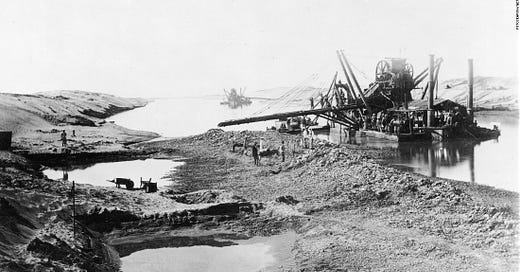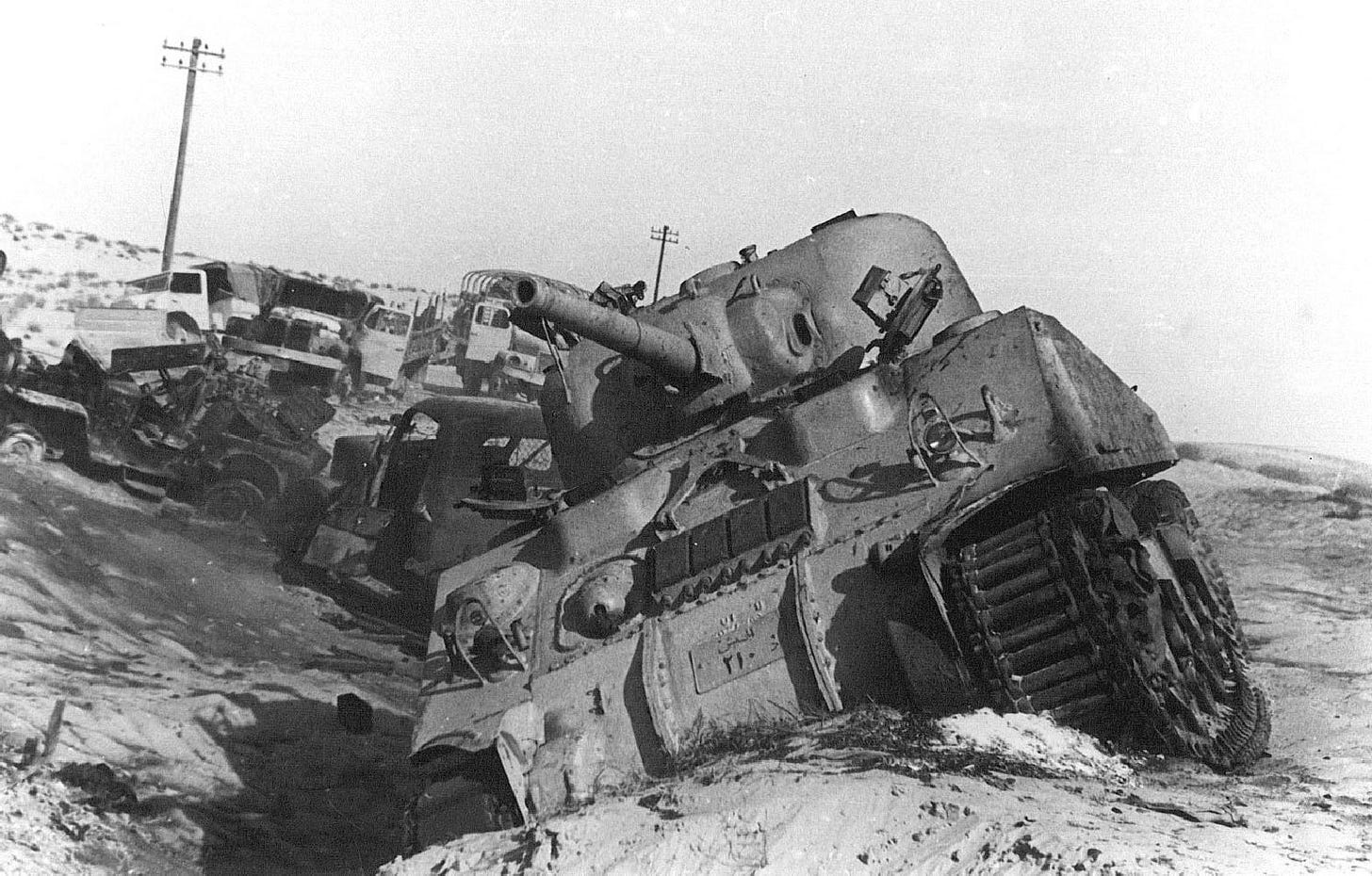#ThisDayInHistory The Suez Canal was seized by The Egyptian President
The Suez Canal was opened in 1869, after ten years of work financed by the French and Egyptian governments. The canal was operated by the Universal Company of the Suez Maritime Canal, an Egyptian-chartered company; the area surrounding the canal remained sovereign Egyptian territory and the only land bridge between Africa and Asia.
The canal instantly became strategically important, as it provided the shortest ocean link between the Mediterranean Sea and the Indian Ocean. The canal eased commerce for trading nations and particularly helped European colonial powers to gain and govern their colonies.
In 1875, as a result of debt and financial crisis, Egypt was forced to sell its shares in the canal operating company to the British government
The Suez Crisis, or the Second Arab–Israeli war, also called the Tripartite Aggression in the Arab world and the Sinai War in Israel, was an invasion of Egypt in late 1956 by Israel, followed by the United Kingdom and France.
The aims were to regain control of the Suez Canal for the Western powers and to remove Egyptian President Gamal Abdel Nasser, who had just swiftly nationalized the foreign-owned Suez Canal Company, which administered the canal.
On 26 July 1956, Nasser nationalized the Suez Canal Company, which prior to that was owned primarily by British and French shareholders.
On 29 October, Israel invaded the Egyptian Sinai. Britain and France issued a joint ultimatum to cease fire, which was ignored. On 5 November, Britain and France landed paratroopers along the Suez Canal.
Before the Egyptian forces were defeated, they had blocked the canal to all shipping by sinking 40 ships in the canal.
Heavy political pressure from the United States and the USSR led to a withdrawal. U.S. President Dwight D. Eisenhower had strongly warned Britain not to invade; he threatened serious damage to the British financial system by selling the US government's pound sterling bonds.
Historians conclude the crisis "signified the end of Great Britain's role as one of the world's major powers".
The Suez Canal was closed from October 1956 until March 1957. Israel fulfilled some of its objectives, such as attaining freedom of navigation through the Straits of Tiran, which Egypt had blocked Israeli shipping from 1948-50.
As a result of the conflict, the United Nations created the UNEF Peacekeepers to police the Egyptian–Israeli border, British prime minister Anthony Eden resigned, Canadian external affairs minister Lester Pearson won the Nobel Peace Prize, and the USSR may have been emboldened to invade Hungary.
#ThisDayInHistory
July 26, 1956






